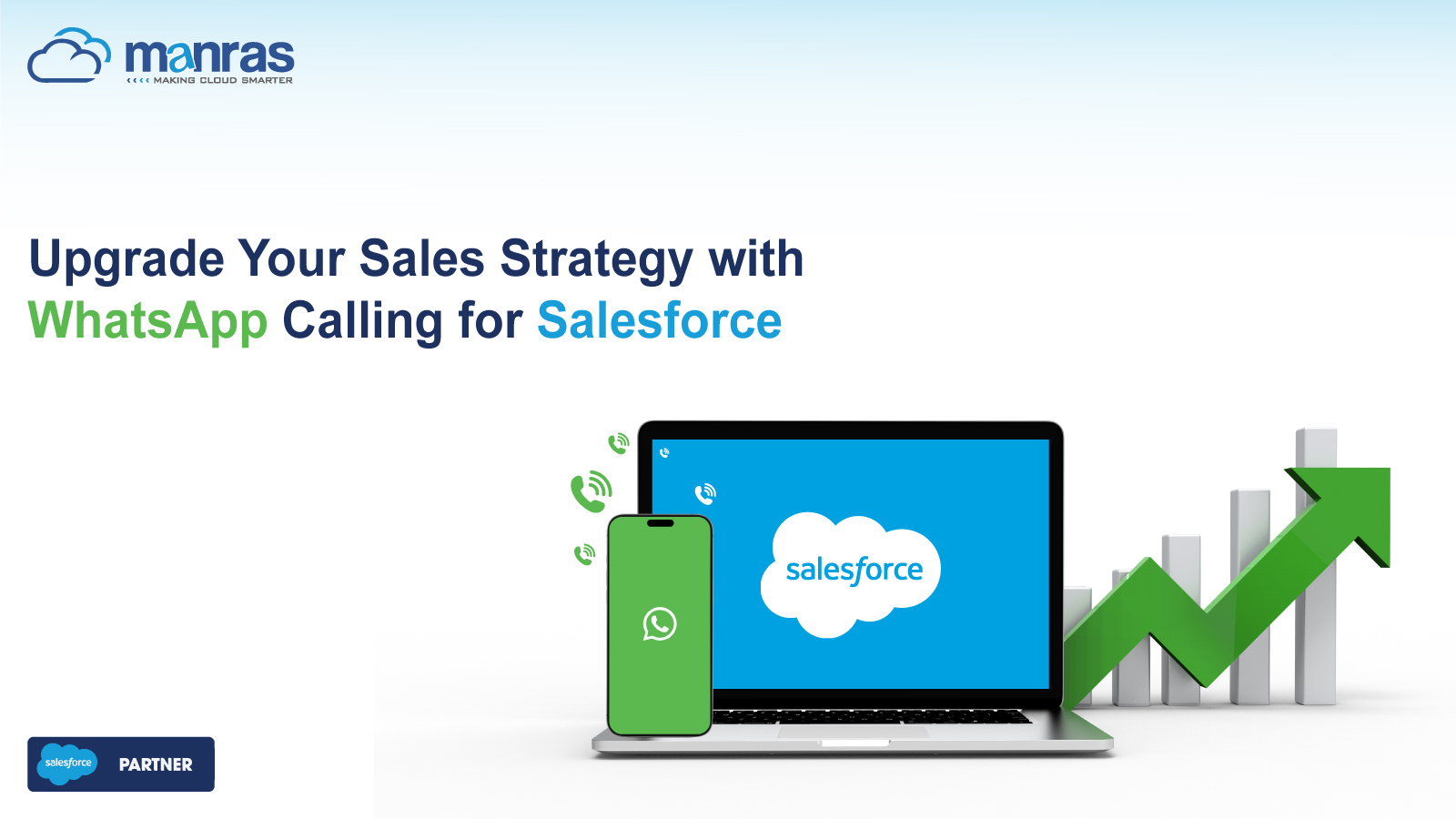
Upgrade Your Sales Strategy with WhatsApp Calling for Salesforce
WhatsApp calling for Salesforce flips the script on what occurs in that all-important moment immediately after a lead has expressed interest. Imagine this: a lead fills out a form, clicks on a pricing page, or answers a campaign. The sales team receives the alert but rather than making the call, they wait. They are going to call back after they complete a few other tasks. Hours go by. By the time the person calls out, the lead is either cold or on the phone with a competitor.
It occurs daily. And not necessarily because the team is unmotivated or lazy but because the system isn’t conducive to making real-time voice contact. CRMs pack in data, notifications, and workflows, but few actually enable what creates instant connection like a real conversation.
The majority of sales approaches now rely on emails, drip campaigns, and auto-follow-ups. These are useful tools but they don’t talk. They don’t detect tone, sense hesitation, or provide empathy. They don’t close.
Each digital touchpoint is a chance but without a voice attached to it, that chance remains static. That is where the gap is: we gather intent indicators but react late. We automate interest but don’t remember to humanize the close.
Sales tactics require voice-back. They require speed, context, and a means of speaking to leads the instant they’re ready. That’s just what WhatsApp calling within Salesforce offers.
When your team is able to get a call from within the CRM the moment a lead is interested, you don’t merely talk, you arrive. You break through inboxes and wait times. You initiate a conversation while the interest remains genuine. And in sales, that’s what sets you apart.
Silence Hurts Revenue: Why Delays Kill Deals
Buyers move fast and if your sales team doesn’t keep up, a competitor will. Sales people lose prospects not for lack of leads, but for slow follow-through. It is shown that responding in five minutes improves the chances of conversion by more than 80%. Within ten minutes, that’s down significantly. Within an hour, it’s usually too late. By that time, the prospect is gone, lost interest, or worse, talked to a competitor.
The issue doesn’t begin with intention. It begins with the way teams execute on that intention. Sales funnels create leads with forms, ads, and campaigns but when it comes to follow-up, reps are delayed. They glance at the inbox, open the CRM, toggle to a different calling app, and try to assemble the conversation. While getting ready, the opportunity is lost.
This disconnection between lead capture and real-time conversation holds everything back. The use of different systems introduces friction. Using only email or chat introduces more delay. These technologies don’t have an urgent tone, and they can’t provide the personal touch voice calls can.
The WhatsApp calling for Salesforce bridges that gap. It eliminates the need to switch apps, wait around, or second-guess your next move. Sales reps have the lead and make the call right now, all inside the CRM. That velocity isn’t just efficient; it’s what buyers expect today.
What’s Missing from Most CRMs Today
CRMs offer transparency, organization, and automation, but most still miss the one thing that actually closes deals: live, contextual voice conversations. Sales occur in seconds. A lead clicks on a link, responds to a message, or downloads a brochure, that’s intent. But when your CRM isn’t able to reply to that intent in real-time with voice, it falls short. All but a few platforms depend on passive tools such as email chains, task reminders, or message templates. They assist with quantity, not with timing.
The sales rep reads the notification, switches apps, searches for the lead, and makes the call by then, the lead has already lost interest. The opportunity to connect disappears quickly and the deal goes cold before it can even start.
That’s the gap: CRMs organize information but hardly ever allow teams to act on it in real-time. They monitor activity but don’t facilitate actual conversations when they matter. That’s where sales teams stall.
WhatsApp calling for Salesforce fills this gap. It brings calling to the workflow just when and where it is important. Reps skip the slow emails and generic messages, they call when the lead’s interest is fresh and focused. Sales isn’t at a standstill. Your CRM needn’t be.
WhatsApp Calling for Salesforce is A Game-Changer
Sales reps don’t require more tools, they require intelligent ones. That’s where WhatsApp calling integration with Salesforce comes into play. You have the conversation while the lead remains engaged, and the whole call length, notes, and result records automatically in the CRM.
All in one place. No need to switch apps. Just seamless, instant action. WhatsApp calling for Salesforce eliminates the friction that impedes sales conversations. It allows reps to react in real-time and remain in flow within the CRM. When calls are this easy, teams don’t just speed up, teams sell smarter.
How This Changes Sales Strategy on the Ground
Speed, visibility, and human touch are the cornerstones of an effective sales process. But most strategies fail because tools can’t match the speed of real-time interaction. Everything shifts when voice becomes a built-in part of your CRM.
Sales reps can now react the instant a lead acts. Whether a person downloads a brochure, requests a demo, or clicks on a campaign, the rep doesn’t need to stop what they’re doing, copy information, and switch to a different app. They can take calls directly within Salesforce. There is no waiting period. No distractions. Just one click and they’re talking to the prospect when interest is high. That velocity not only elevates connection rates but also enhances the likelihood of turning that interest into action.
In the meantime, voice interactions are no longer a dark art for managers. With each call automatically recorded. The call duration, time stamps, and associated records are included. They have complete insight into how and when reps are interacting with leads. This means improved coaching, more accurate forecasting, and better decision-making. Voice, previously the least measurable aspect of sales, is as easy to measure as emails and meetings.
And from the customer’s side, the experience is dramatically enhanced. Rather than waiting for a response or juggling through impersonal email automations, they have a live human being on the phone. Somebody who already has their context, knows their needs, and can provide value immediately. It’s quick, responsive, and human.
WhatsApp calling for Salesforce doesn’t simply make it easier to communicate, it redefines the flow of sales at each level. It enables reps to respond with immediacy, informs leaders in real-time, and provides the type of personal interaction that converts prospects into customers.
Real Impact: From Leads to Loyalty with WhatsApp calling for Salesforce
Speed revolutionizes sales but only if it’s paired with authentic human interaction. When salespeople are able to engage leads one-on-one at the point of interest, they truncate the entire process. Rather than waiting days to qualify a lead, they qualify them in minutes. Rather than allowing uncertainty to hang around, they resolve objections in real time. And rather than taking a deal through long, drawn-out follow-ups, they close it when momentum is still fresh.
This level of immediacy has an actual business effect. Reps no longer pursue cold leads or squander time on prospects with low intent. They connect purposefully and act when interest is genuine. Talks happen naturally, not artificially. And prospects aren’t lost in a pipeline, they hear, understand, and value.
That’s especially important in today’s digital-first world. Buyers interact with brands through screens, forms, and bots. But when a real voice cuts through the noise, it feels different. It signals that someone’s paying attention. That there’s a human behind the brand. And that kind of presence builds trust faster and more deeply than any automated message ever could.
Meanwhile, teams require more than velocity, they require structure. Each interaction, each conversation, and each result has to relate back to the larger sales strategy. That’s why follow-ups, outcomes, and calls being tracked in the CRM are as important as actually making the call itself. When all of it resides in a single system, teams don’t waste time with redundant efforts, remain on the same page across departments, and make more intelligent decisions with full visibility.
WhatsApp calling integration with Salesforce makes all this possible. It unites rapid response, human interaction, and central data. Three things today’s sales teams can’t do without. The outcome is not merely additional conversions. It’s deeper relationships, greater retention, and long-term loyalty.
Final Thought: Let Sales Talk Again
Salespeople waste time creating forms, setting up emails, and automating follow-ups while forgetting the one thing that actually makes decisions happen. It is an actual conversation.
Each lead carries intent, but that intent dwindles rapidly when it’s met with silence or delayed responses. You can possess the greatest CRM on the planet, but if it doesn’t encourage live, human interaction, you’ll lose deals to more responsive rivals. Conversations bring clarity. They reveal needs, dispel doubts, and foster trust in a way no static message possibly can.
WhatsApp calling for Salesforce puts voice back in the sales strategy where it’s supposed to be. It empowers reps to respond in the moment, speak with context, and build real moments of connection, all from within the CRM.
Want to hear it for yourself? Begin a conversation that converts. Let’s get connected with our experts for Whatsapp calling integration with Salesforce!
For more insights, updates, and expert tips, follow us on LinkedIn.



